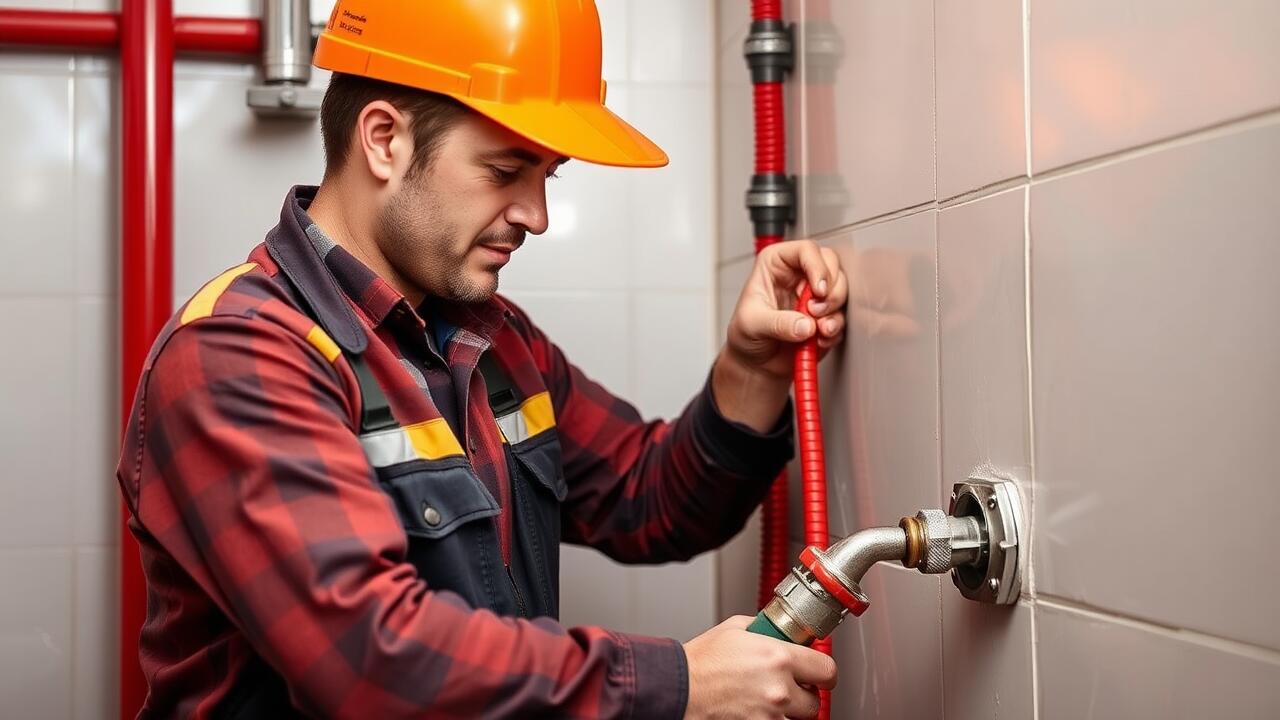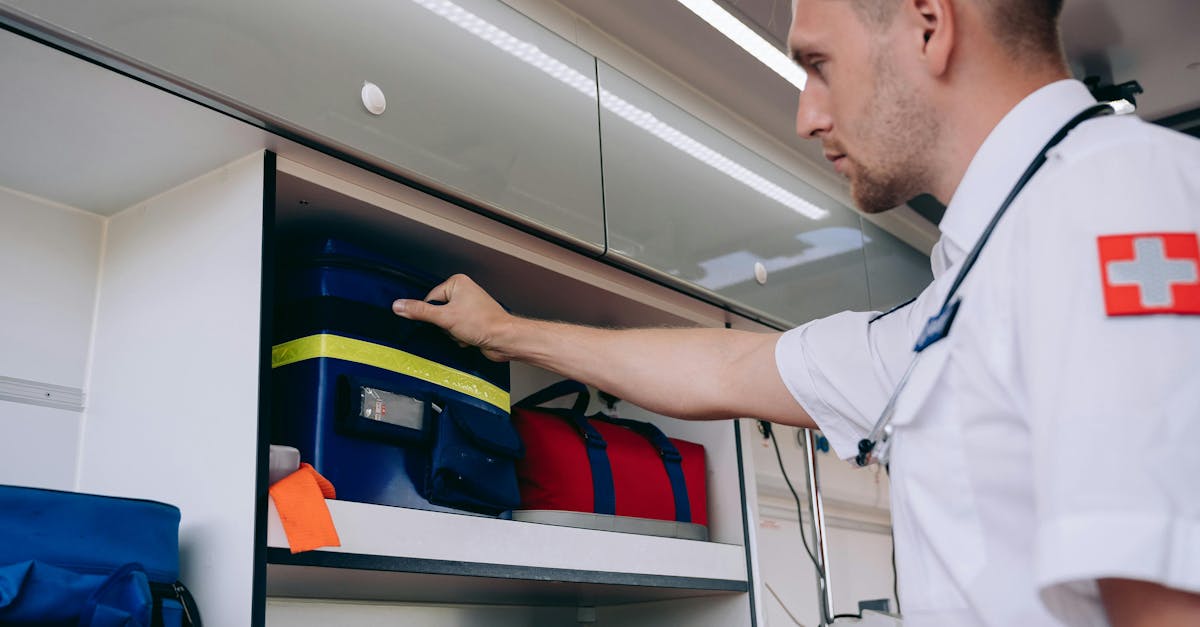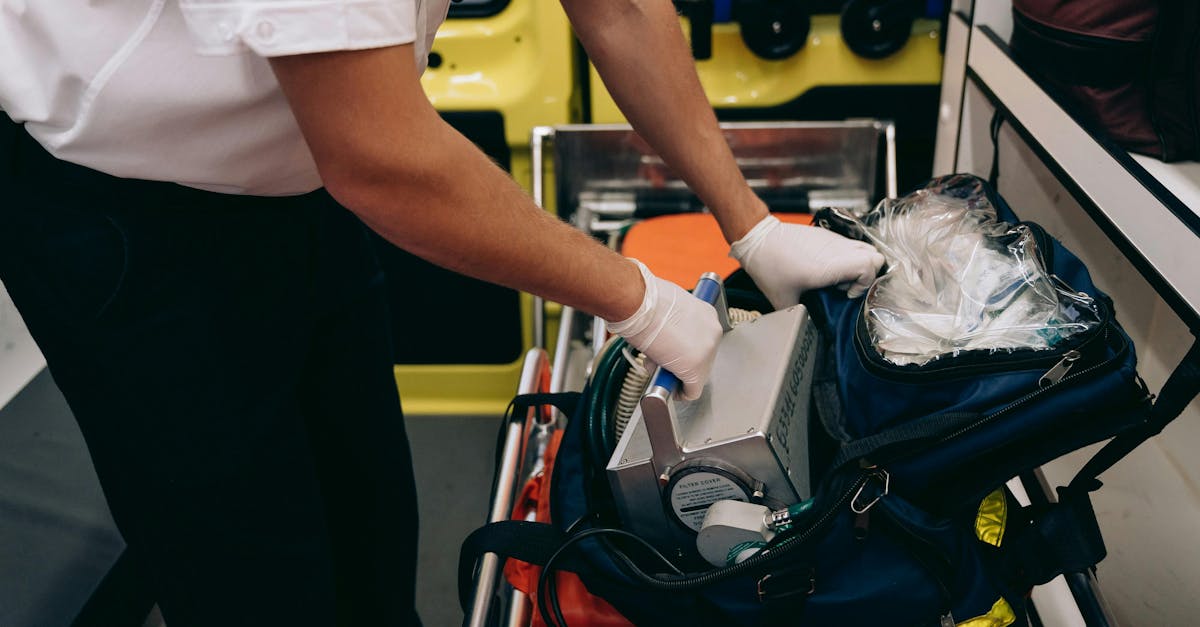
Table Of Contents
Maintenance and Care
Regular maintenance is essential for keeping continuous flow hot water systems operating efficiently. Homeowners should schedule an annual check-up with a qualified hot water plumber to ensure that all components function properly. These professionals can identify any potential issues before they evolve into more serious problems, such as sediment buildup in the heat exchanger or failed temperature settings. Additionally, checking the water inlet filter regularly helps to prevent blockages that can disrupt water flow.
Cleaning the exterior and ensuring proper ventilation around the unit can also enhance performance and longevity. Homeowners should monitor the system for any unusual noises or changes in water temperature, as these could indicate a malfunction. Prompt attention to these signs, coupled with professional servicing, ensures that the continuous flow hot water system operates at its best, providing consistent hot water when needed.
Regular Service Needs
Regular maintenance of continuous flow hot water systems is crucial to ensure their optimal performance and longevity. Scheduling regular service visits with a qualified hot water plumber can help identify potential issues before they escalate. This maintenance typically includes inspecting the unit for any leaks, checking the gas connections, and ensuring that the temperature settings are appropriate. Regular servicing also involves flushing the system to remove any sediment or mineral build-up, which can affect efficiency and water quality.
In addition to routine checks, users should keep an eye on the system's pressure relief valve and ensure there are no unusual noises coming from the unit. It is also advisable to inspect the inlet filters periodically for debris that may restrict water flow. Consulting a hot water plumber for these tasks ensures that the system operates safely and efficiently, ultimately providing uninterrupted hot water supply to the home. Regular attention to these service needs can significantly extend the life of the system and enhance its performance.
Comparing with Storage Hot Water Systems
Continuous flow hot water systems and storage hot water systems serve the same purpose but operate in distinctly different ways. Storage systems maintain a reservoir of hot water, allowing for immediate access, which can be beneficial during peak usage times. This design, however, involves energy being consumed consistently to keep water heated, leading to potential inefficiencies. A hot water plumber can help assess the right system for your needs, ensuring the best fit based on hot water demand and energy costs.
On the other hand, continuous flow systems heat water on demand, which means they only use energy when hot water is needed. This can lead to reduced energy bills and less water wastage, making them more efficient for some households. However, they may struggle to keep up with simultaneous high-demand events, such as multiple showers running at once. Consulting a hot water plumber can provide insights into flow rates and system capabilities, helping homeowners make an informed decision.
Pros and Cons of Each System
Continuous flow hot water systems offer numerous advantages, primarily their on-demand heating capability. This means users can enjoy hot water whenever it is needed, eliminating the risk of running out. These systems tend to be more energy-efficient, as they only heat water as it is used. Many households appreciate the space-saving design, as these units are typically smaller than traditional storage systems. A hot water plumber can easily install these units in various locations, providing versatility in home design.
On the other hand, continuous flow systems can have limitations. The flow rate may be insufficient for larger households, especially during peak usage times. If multiple taps are used simultaneously, users might experience a decrease in water temperature or pressure. In contrast, storage hot water systems can provide a steady supply of pre-heated water, which can be beneficial for larger families or high-demand situations. However, these traditional systems can take up significant space and may lead to higher energy consumption due to standby heat loss. Consulting a hot water plumber can provide insights on the best system for a household's specific needs.
Environmental Impact
The environmental impact of continuous flow hot water systems is notable due to their energy efficiency. These systems only heat water as needed, which reduces energy consumption compared to traditional storage hot water systems. In areas with a high demand for hot water, continuous flow units can significantly lower greenhouse gas emissions. The size and energy rating of the unit selected can further influence its environmental footprint. For optimal performance, consulting a qualified hot water plumber familiar with local conditions is advisable.
On the other hand, storage hot water systems typically encounter heat loss while maintaining a large volume of hot water. This is due to the constant heating required to keep the water ready for use. While some newer models are designed to minimise energy losses, the initial energy requirements often exceed those of continuous flow systems. Additionally, selecting energy-efficient models can enhance their eco-friendliness. A hot water plumber can assist in evaluating the most suitable options based on individual needs and environmental considerations.
EcoFriendly Options
When considering eco-friendly options for continuous flow hot water systems, several factors come into play. Efficient energy use is fundamental to reducing environmental impact. Many modern continuous flow systems boast high energy ratings, meaning they provide hot water only when needed. This on-demand feature helps minimise energy waste compared to traditional storage systems, which constantly heat and maintain a reservoir of water. Consultation with a qualified hot water plumber can help determine the most suitable model that aligns with environmentally conscious practices.
Additionally, selecting systems that utilise renewable energy sources can further enhance their eco-friendliness. Some continuous flow units can be integrated with solar heating systems, reducing reliance on fossil fuels. Eco-friendly technologies are continuously evolving, offering products designed to lower carbon footprints. Engaging with a hot water plumber not only ensures proper installation but also provides valuable insights into the latest sustainable solutions available on the market.
FAQS
What is a continuous flow hot water system?
A continuous flow hot water system, also known as an on-demand or instant hot water system, heats water directly as it flows through the unit, providing a constant supply of hot water without the need for a storage tank.
How often should I service my continuous flow hot water system?
It is recommended to service your continuous flow hot water system at least once a year to ensure optimal performance and efficiency, as well as to address any potential issues before they become major problems.
What are the main advantages of continuous flow hot water systems compared to storage hot water systems?
Continuous flow hot water systems provide an endless supply of hot water, are more energy-efficient since they only heat water when needed, and typically take up less space than traditional storage systems.
Are continuous flow hot water systems more environmentally friendly?
Yes, continuous flow hot water systems are generally considered more environmentally friendly as they reduce energy consumption by heating water only when required, leading to lower greenhouse gas emissions.
Can I install a continuous flow hot water system myself?
While some homeowners may attempt to install a continuous flow hot water system, it is highly recommended to hire a licensed plumber to ensure proper installation and compliance with local regulations.





























